Introduction
Why Do Cats Like To Lay On You: The intriguing world of feline companionship! If you’ve ever wondered why your beloved cat has a strong inclination to curl up and lay on you, you’re not alone. This endearing behavior has puzzled and delighted cats see owners for generations. In this exploration, we delve into the various reasons behind your cat’s desire to be in your presence, on your lap, or even draped across your shoulders. From their ancient instincts to their affectionate nature, join us as we uncover the charming motivations that drive cats to claim you as their favorite resting spot.
Step into the realm of feline behavior as we embark on a journey to understand one of the most heartwarming and perplexing actions of our whiskered companions – why do cats choose to lay on us? Beyond the simple act of seeking warmth, there’s a captivating world of instincts, emotions, and connections that come into play. From tracing this behavior back to their wild ancestors to exploring the unique bond they share with their human counterparts, we’ll unravel the layers of this cozy and often comical feline tendency. So, settle in and prepare to uncover the secrets behind why your cat finds comfort in making you their personal lounging spot.
Indulge in the enigmatic realm of feline companionship, where the age-old question lingers: why do cats find solace in laying on you? As any cat owner knows, these four-legged friends have a way of capturing our hearts and claiming our personal space. But beneath the cozy exterior lies a captivating tale of instinctual behaviors, territorial instincts, and an unspoken language of love. Join us as we embark on a quest to decipher the motives behind your cat’s irresistible urge to nestle upon you – a journey that unveils the intricate threads that weave the unique tapestry of human-feline bonds.
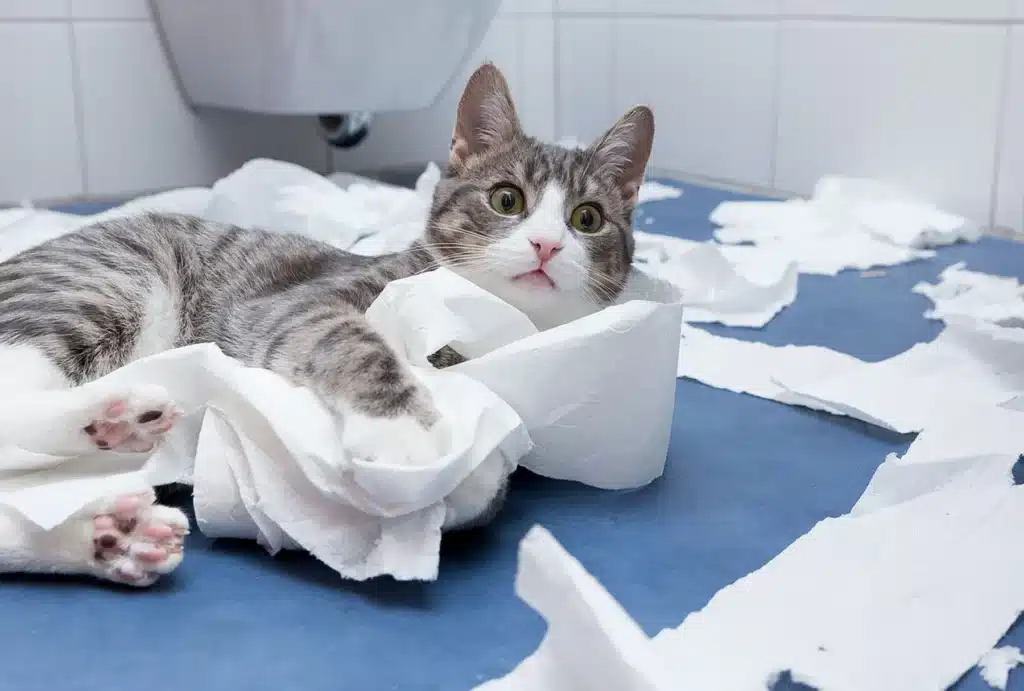
What does it mean when a cat lays on you?
It’s one of the main ways they communicate. Your cat may rub her face on you to deposit pheromones and oils, showing comfort and marking ownership. And because your smell is familiar, it’s comforting and secure. By sleeping on you, she might be marking you as belonging to her.
Trust and Comfort
When a cat lays on you, it’s a silent declaration of trust and comfort. Cats are creatures of habit, and their cautious nature makes them selective about the spaces they deem safe. By choosing to rest on your lap, chest, or even draped over your shoulders, they’re displaying a remarkable level of vulnerability and security. Your presence provides a sense of safety that allows them to let their guard down.
Bonding and Affection
Felines are known for their independent nature, but their penchant for physical closeness is a testament to their affectionate side. When a cat lays on you, they’re not only seeking physical warmth but also emotional closeness. This behavior is an extension of their social interactions with other cats, where grooming and physical contact signify strong bonds.
Territory and Ownership
In the wild, cats use scent marking to establish their territory. By laying on you, they’re essentially claiming you as their own. It’s a display of ownership, where they’re mingling their scent with yours, creating a shared space that solidifies your place in their world.
Where your cat sleeps on your bed and what it means?
If your cat sleeps on your bed, he may choose a position that lets him see out your bedroom door more easily. If he’s curled up in a ball under your bed or in a quiet corner, then he may be hiding. Cats who sleep under the covers might love being close to you, or they might be hiding to feel safer.
Near Your Head or Chest
When your cat curls up near your head or chest, they’re showcasing a strong sense of trust and affection. This area holds the soothing rhythm of your breathing and the reassuring beat of your heart. By choosing this proximity, your cat is seeking not only physical warmth but also emotional comfort. It’s a sign that they feel deeply connected to you and are drawn to the warmth of your presence.
At Your Feet
If your cat prefers the foot of the bed or near your feet, they’re likely seeking a balance of security and independence. This choice harks back to their ancestral instincts, where sleeping at the feet of their human guardian provided a sense of protection while allowing them to maintain some distance. It’s a location that suggests they feel safe in your presence, yet desire a touch of personal space.
Across Your Pillow
Should your cat settle right across your pillow, they’re displaying a desire for dominance and claiming the high ground. Cats naturally seek elevated positions to observe their surroundings, and by positioning themselves above your head, they’re displaying a confident stance. This spot might also have traces of your scent, and your cat’s choice to blend the two scents together is a subtle way of solidifying their place in your life.
Why do cats lay on your chest?
It’s how they show love and trust. Your cat may lie on your chest to show that you’re their protector. They love the warmth coming from your body and listening to your heartbeat. If you have more than one pet, your cat might simply be marking their territory around you to tell other pets to stay away.
Heartbeat and Comfort
Your cat’s decision to lay on your chest isn’t just a coincidence. The rhythmic sound of your heartbeat and the rise and fall of your chest as you breathe create a soothing ambiance that reminds them of their kitten days spent close to their mother. This comforting sensation is reminiscent of the security they felt during their early stages of life.
Bond of Trust
When a cat lays on your chest, it’s a display of immense trust and a deep emotional bond. Cats are naturally cautious creatures, and they choose their resting places carefully. By selecting your chest, they’re showcasing their faith in your protection and the safety your presence provides.
Affectionate Connection
Cats are known for their aloofness, but they’re equally capable of forming strong attachments. Laying on your chest is an affectionate gesture, an extension of their desire to be close to you. It’s a non-verbal declaration of their love and an acknowledgment of your importance in their world.
Shared Warmth
Your chest offers a warm and cozy spot, making it an ideal resting place for your cat. Cats are adept at seeking out warmth, and your body’s natural heat source becomes even more inviting when they’re seeking relaxation and comfort.
Should I touch my cat while sleeping?
How Cats Choose Who to Sleep With – Union Lake Pet Services
Reduces stress – Petting a sleeping cat has been shown to lower blood pressure and reduce anxiety, depression, and stress. Strengthens the bond – Cats who sleep with their humans are closer to them. This comfortable snuggle helps them feel more trust and safety with their owners.
Respecting Boundaries: Cats, despite their affectionate moments, are also known for their independent nature. Just as humans have varying preferences about personal space, so do cats. Some cats enjoy physical contact while they sleep, while others may prefer to snooze undisturbed. Pay attention to your cat’s cues – if they’ve positioned themselves close to you, it might indicate they’re comfortable with interaction.
Reading Their Body Language: Before deciding to touch your sleeping cat, observe their body language. If they’re relaxed and sprawled out, they might be more receptive to gentle touches. However, if they’re curled up tightly or tucked away, it could be a sign that they’re seeking solitude. Respect their choice and avoid disturbing their rest.
Gradual Introduction: If you’re unsure whether your cat appreciates being touched while sleeping, try a gradual approach. Start by placing your hand near them without making direct contact. Observe their reaction – if they don’t seem bothered, you can proceed with light strokes or gentle pets. If they wake up or move away, it’s a sign they prefer their slumber undisturbed.
Do cats love you if they lay on you?
Don’t be fooled by their reputation of being standoffish. Yes, cats want to bond with their owners in their own unique way. One of their ways of showing their affection is to sleep with you. It’s your cat’s way to show how much they want to be near you.
Forming Bonds: Cats are known for forming deep attachments, and choosing to lay on you is a way for them to nurture that bond. Your scent, warmth, and rhythmic heartbeat provide a sense of reassurance that’s reminiscent of their early days with their mother. This closeness symbolizes a strong emotional connection that has been cultivated over time.
Seeking Closeness: Cats have their own way of showing physical affection. While some cats might not enjoy cuddling, laying on you is a subtle form of seeking physical closeness. Their presence on your lap or chest offers them comfort and a sense of security, and it’s a way for them to share their warmth with you.
Territorial Display: In the feline world, scent is crucial for marking territory. When a cat lays on you, they’re blending their scent with yours, creating a unique amalgamation that signifies shared territory. This subtle scent exchange is a declaration that you’re an important part of their environment.
Is it good if a cat sleeps next to you?
Cats are often thought of as being independent creatures who are happy in their own company. But your cat can get lonely. Interacting with the human they love helps to enrich their lives (and yours). If your cat sleeps with you this indicates that they enjoy your company and want to spend time with you.
Hairballs: Cats are meticulous groomers, and during the grooming process, they can ingest hair. This hair can accumulate in their stomach and form hairballs, which might lead to occasional coughing as they try to expel them.
Respiratory Infections: Cats can suffer from upper respiratory infections caused by viruses or bacteria. These infections can lead to coughing, sneezing, and nasal discharge.
Asthma: Some cats can develop asthma, a condition characterized by inflammation of the airways. Coughing, wheezing, and difficulty breathing can be signs of feline asthma.
Allergies: Cats can be allergic to various environmental factors, including pollen, dust, mold, and certain foods. Allergic reactions can manifest as coughing, sneezing, and other respiratory symptoms.
Why does my cat sit next to me but not on my lap?
Some cats are more timid or anxious, and sitting on your lap might make them feel unsafe or vulnerable. Sitting next to you offers them security and an escape route if needed. Perhaps they had a negative experience, such as being mishandled, dropped, or hurt while on someone’s lap.
Personal Space Preference
Cats, despite their reputation for being aloof, do have a sense of personal space. Some cats are more sensitive to touch and pressure than others. When a cat sits next to you instead of on your lap, it might be because they want to be close but aren’t comfortable with the direct contact that sitting on your lap entails. They can enjoy your presence and companionship without feeling overwhelmed by physical closeness.
Temperature and Comfort
Cats are known for seeking out warm and comfortable spots to lounge. While your lap might seem inviting to you, it might not always provide the optimal warmth that your cat desires. They might choose to sit beside you on a cozy blanket or cushion where they can regulate their own temperature better. This behavior could also be related to the texture and softness of the surface they prefer.
Control and Safety
Cats are inherently cautious animals, and they like to have a clear view of their surroundings to feel secure. When a cat sits beside you, they can keep an eye on their environment while still being close to you. Sitting on your lap might make them feel vulnerable, as their movement would be restricted, and they might not be able to quickly react to potential threats.
Do cats hate being touched while sleeping?
If your cat is busy doing something else, like eating, sleeping or playing they are unlikely to appreciate being touched, or fussed. The same goes for if they’re hiding, or in one of their quiet places. If your cat appears scared, or in pain you should generally try and avoid touching them.
Sensitivity to Touch
Cats possess an acute sense of touch, and their skin is laden with sensitive nerve endings. When a cat is asleep, especially in a deep slumber, their sensitivity to touch might be heightened. Light touches or sudden movements could startle them or cause discomfort. It’s essential to approach a sleeping cat with gentleness and caution, as they might react unexpectedly if they feel their personal space is invaded.
Vulnerability and Startle Response
Sleep is a vulnerable state for any living creature, and cats are no exception. Even though domesticated cats have adapted to trust their human caregivers, their survival instincts can kick in during sleep. A sudden touch might trigger a startle response, causing the cat to react defensively. Some cats might jolt awake or swat instinctively, as they momentarily perceive the touch as a potential threat.
Respecting Boundaries
Just as humans have personal boundaries, cats have their own comfort zones too. Some cats are more tolerant of being touched during sleep, especially if they have developed a strong bond with their owner. However, many cats prefer to have their space respected while they rest. By observing your cat’s body language and recognizing cues like twitching ears or a twitching tail, you can gauge whether your cat is in a deep sleep or a lighter doze, and respond accordingly.
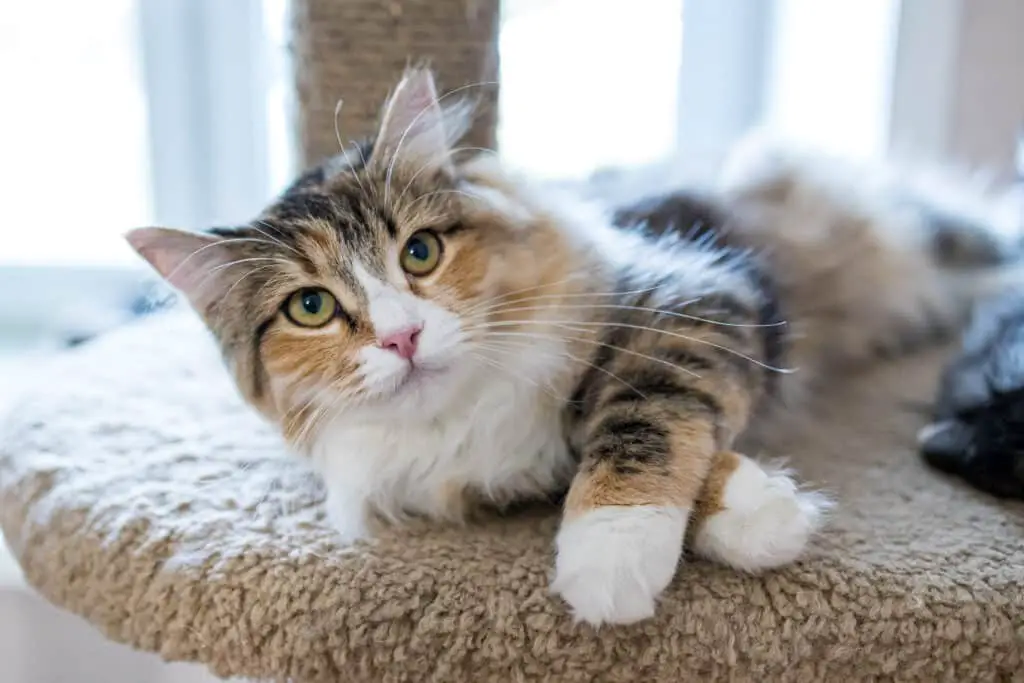
Conclusion
In the end, the mystery of why cats choose to lay on us reveals a beautiful tapestry of instincts and emotions that have evolved over centuries. From their wild ancestors seeking warmth and safety in groups to the domesticated felines finding companionship and comfort in their human counterparts, this behavior underscores the unique bond we share with our furry friends. As we bask in the warmth of their presence and relish in the gentle weight of their bodies, it’s clear that this endearing habit is a testament to the profound connection between humans and their feline companions. So, the next time your cat curls up on your lap or stretches out beside you, take a moment to appreciate the depth of their affection and the silent conversation of trust that unfolds, reminding us that sometimes, the most meaningful connections are the ones that require no words at all.
In unraveling the enchanting enigma of why cats sleep choose our laps as their chosen havens, we’ve unearthed a world where ancient instincts meld with modern companionship. From the soft vibrations of a contented purr to the gentle weight of their presence, these seemingly simple acts hold layers of complexity. It’s a reminder that, despite their independent demeanor, our feline friends are deeply attuned to the ebb and flow of our lives. As we cherish those moments when they claim us as their favored resting place, we’re reminded that the threads of connection between humans and cats are woven with delicate intentions – a tapestry that transcends words and leaves us with a profound understanding of the unspoken language of affection. So, let your lap be their sanctuary, a place where warmth, trust, and companionship intertwine, showcasing the timeless bond between species that continues to enrich our lives in ways only they can.
In the intricate dance between humans and their feline companions, the allure of why cats choose to lay on us takes us into the heart of their captivating world. It’s a realm where their innate instincts meld seamlessly with the cozy corners of our lives. As we’ve delved deeper, we’ve uncovered a story of trust and mutual comfort, where our laps become sanctuaries of connection and companionship. From the regal curl of a tail to the gentle press of paws, these actions speak volumes about the unspoken language we share with our cats. Through their choice to rest upon us, they offer us a glimpse into the secret realms of their hearts, where safety, warmth, and trust converge. It’s a behavior that transcends time, tracing back to their wild ancestors who huddled together for protection against the elements.

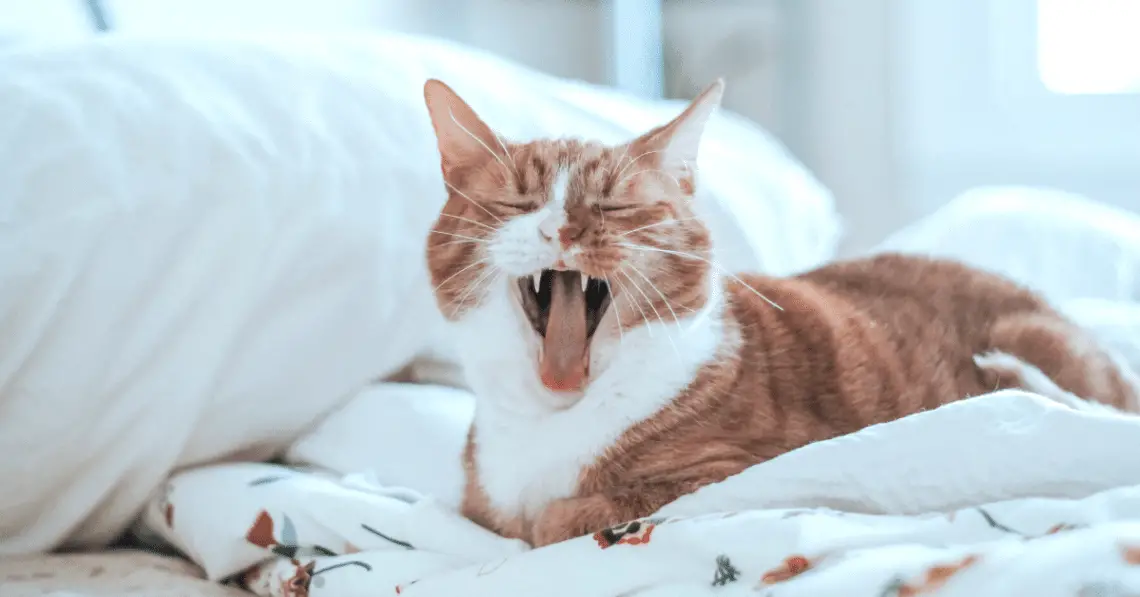
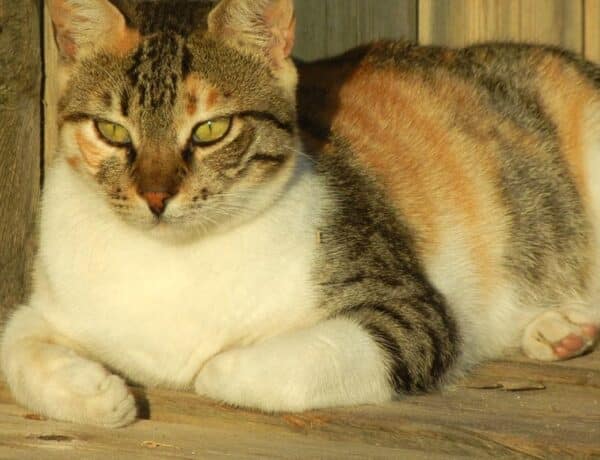
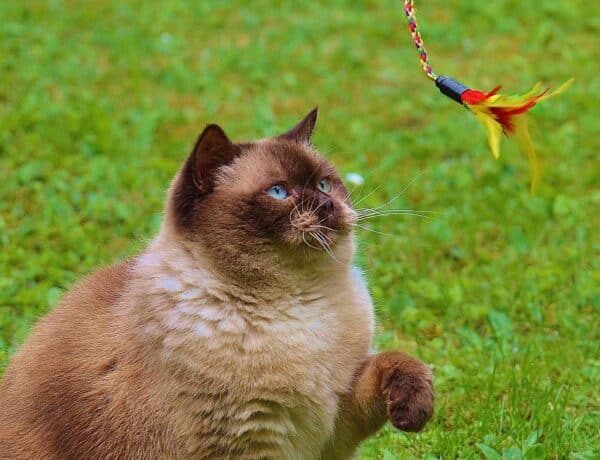

No Comments